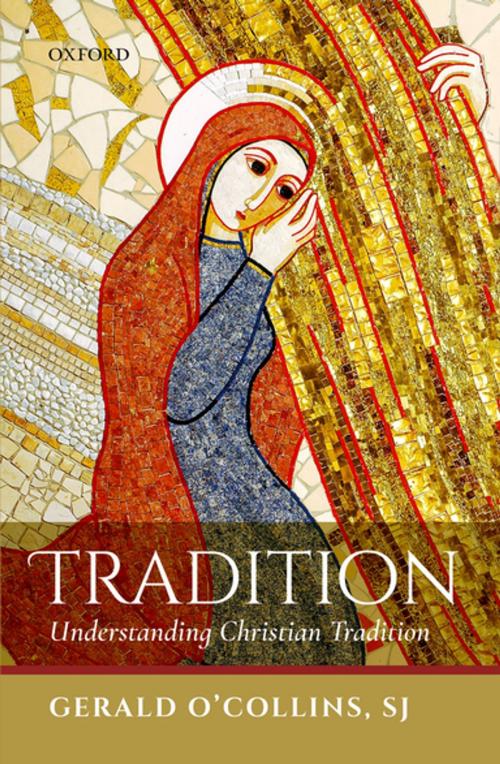Tradition
Understanding Christian Tradition
Nonfiction, Religion & Spirituality, Theology, Christianity| Author: | Gerald O'Collins, SJ | ISBN: | 9780192565990 |
| Publisher: | OUP Oxford | Publication: | November 1, 2018 |
| Imprint: | OUP Oxford | Language: | English |
| Author: | Gerald O'Collins, SJ |
| ISBN: | 9780192565990 |
| Publisher: | OUP Oxford |
| Publication: | November 1, 2018 |
| Imprint: | OUP Oxford |
| Language: | English |
A 1963 report on tradition from the Faith and Order Commission of the World Council of Churches signalled a substantial convergence between the churches over Christian tradition and its relationship to Scripture. However, since the 1960s theologians have regularly ignored the theme of tradition. The few who have discussed this theme have not used the help provided by some sociologists towards understanding the role of tradition in human and religious life: for instance, as being all-pervasive and as shaping the identity of various societies and groups. The process and presence of Christian tradition embrace baptism and other sacraments, Bible, creeds and other doctrines, art, architecture, hymns, pilgrimages, literature, the celebration of Christmas, Easter and other feasts, and much else besides. Particular traditions can call for scrutiny and reform. Tradition: Understanding Christian Tradition proposes various criteria (e.g. the message of the Scriptures and spiritual experience) for discerning and evaluating specific traditions. Through the power of the Holy Spirit, the risen Christ himself is the central Tradition (upper case) at the heart of all Christian traditions. The Spirit remains the primary bearer of the Church's tradition; the secondary agents of tradition include not only ordained ministers but also all the baptized faithful. In the history of Christianity, tradition has interpreted and actualized the Scriptures, but has also been interpreted and challenged by them. An appendix explains the insights coming from specialists in the study of collective memory; their work also sheds light on the workings of Christian tradition.
A 1963 report on tradition from the Faith and Order Commission of the World Council of Churches signalled a substantial convergence between the churches over Christian tradition and its relationship to Scripture. However, since the 1960s theologians have regularly ignored the theme of tradition. The few who have discussed this theme have not used the help provided by some sociologists towards understanding the role of tradition in human and religious life: for instance, as being all-pervasive and as shaping the identity of various societies and groups. The process and presence of Christian tradition embrace baptism and other sacraments, Bible, creeds and other doctrines, art, architecture, hymns, pilgrimages, literature, the celebration of Christmas, Easter and other feasts, and much else besides. Particular traditions can call for scrutiny and reform. Tradition: Understanding Christian Tradition proposes various criteria (e.g. the message of the Scriptures and spiritual experience) for discerning and evaluating specific traditions. Through the power of the Holy Spirit, the risen Christ himself is the central Tradition (upper case) at the heart of all Christian traditions. The Spirit remains the primary bearer of the Church's tradition; the secondary agents of tradition include not only ordained ministers but also all the baptized faithful. In the history of Christianity, tradition has interpreted and actualized the Scriptures, but has also been interpreted and challenged by them. An appendix explains the insights coming from specialists in the study of collective memory; their work also sheds light on the workings of Christian tradition.















